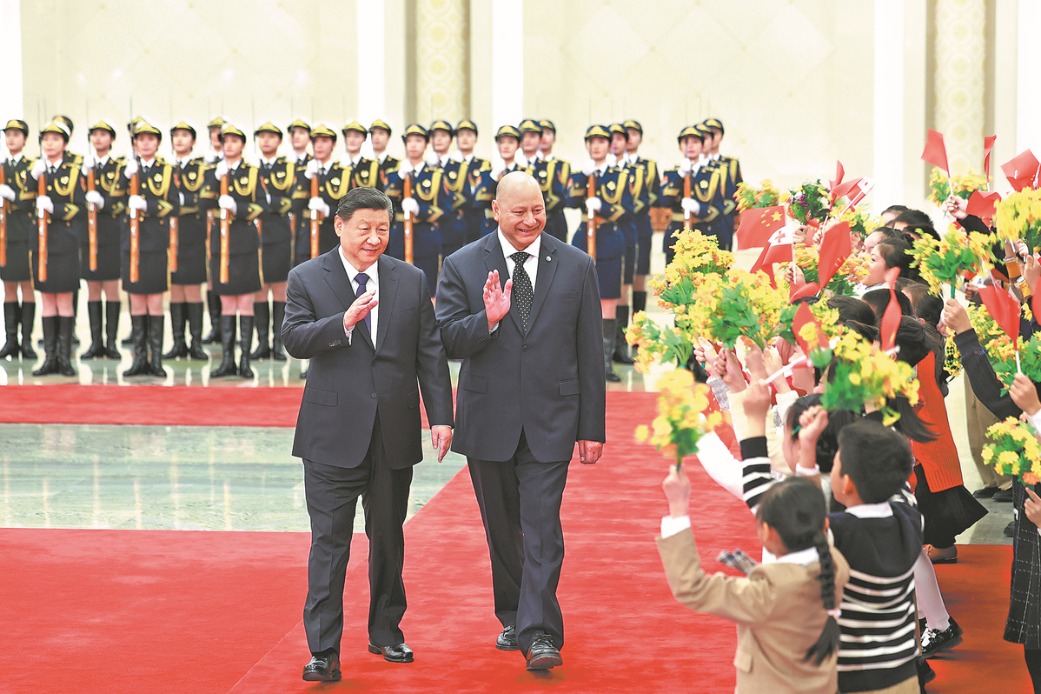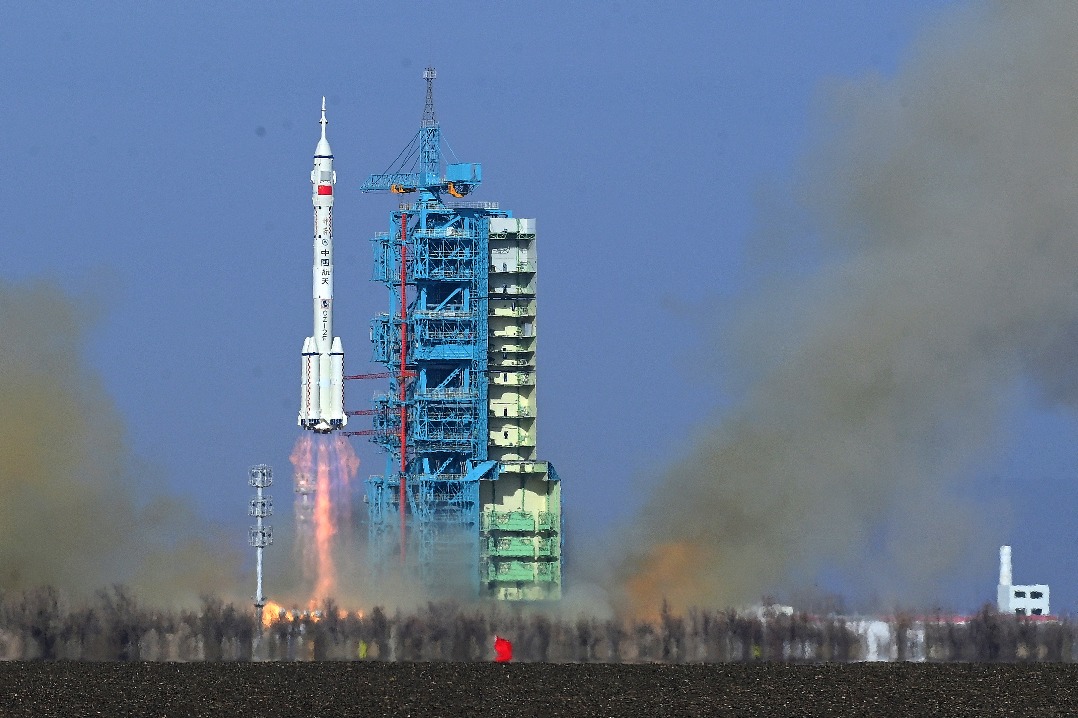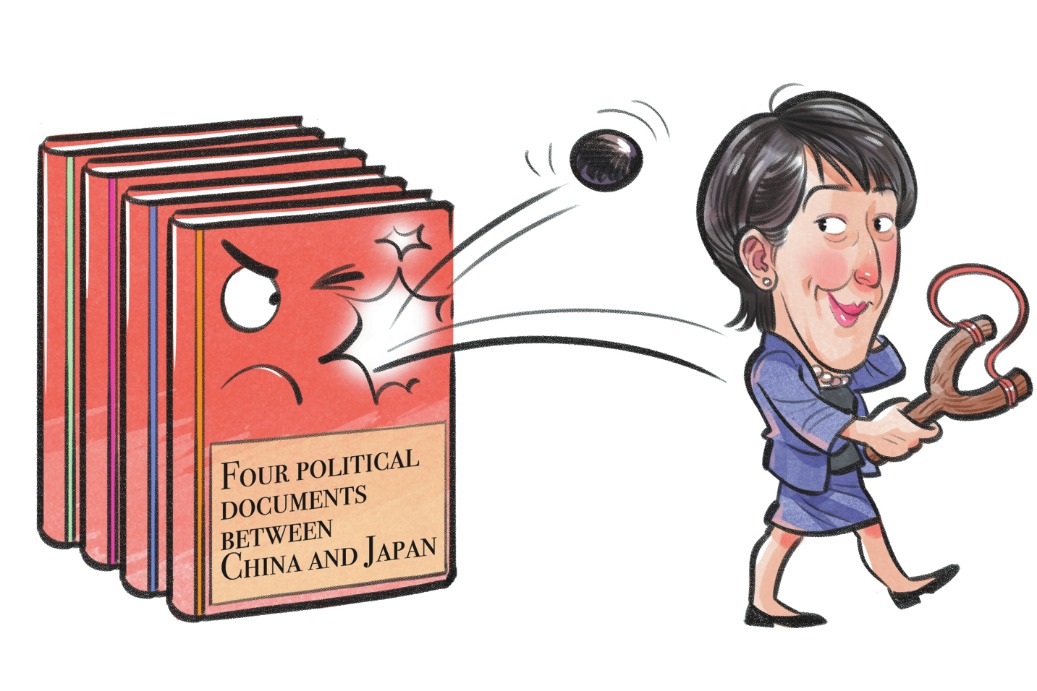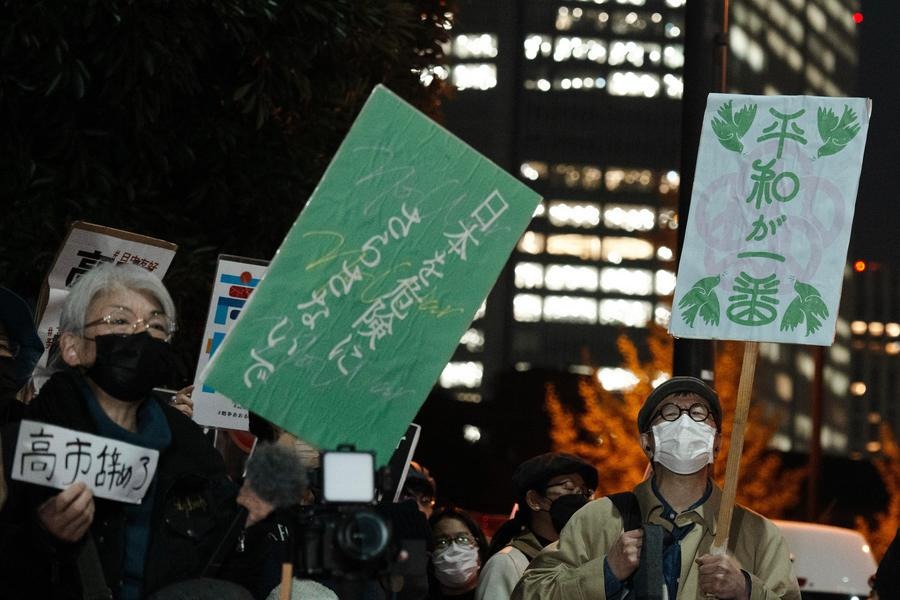Green stabilizers


Cooperation between China and the European Union could serve as a critical anchor for the global climate actions
The global endeavor to address climate change demands immediate and decisive action. The Paris Agreement sets a critical objective: limiting global temperature increase to no more than 1.5 C above pre-industrial levels. According to scientific assessments, meeting this target requires a 60 percent reduction in worldwide carbon emissions by 2030. Yet current Nationally Determined Contributions are projected to achieve only a 10 percent decrease. This gap underscores the need for more ambitious commitments from all countries.
However, the withdrawal of the United States from the Paris Agreement has significantly undermined this process. International climate efforts now face substantial challenges. China and the European Union must cooperate to become a stabilizing force for global climate action.
The US' withdrawal from the Paris Agreement for the second time has cast a shadow over the international community's collective efforts to address global climate change. Accounting for more than one-tenth of annual global carbon emissions, the US withdrawal places immense strain on achieving the collective emissions reduction targets. According to a United Nations Environment Programme report, the US' withdrawal could increase the projected global temperature rise by an additional 0.18 C, effectively erasing the progress made through international energy conservation and emissions reduction efforts over the past two years.
Financial support from developed nations is crucial for climate action in developing countries, as outlined by the principle of "common but differentiated responsibilities" under the UN Framework Convention on Climate Change. The US' withdrawal further strains the already scarce climate financing. More critically, the international consensus for joint climate action has been severely weakened. At the just-concluded COP30 climate summit Belém, Brazil, attendance was merely half that of the previous conference last year. Earlier, a shipping industry climate agreement also succumbed to pressure from the Donald Trump administration, reflecting a troubling trend where climate issues are being politicized and weaponized.
There is growing concern that more nations may be compelled to follow the US' withdrawal. This chilling proposition has spread from the political arena to the business world: corporate attendance at COP30 plummeted, and the multinational investment bank HSBC of the United Kingdom, once a climate leader, recently abandoned key 2030 financing targets for major polluting sectors such as oil and gas, power and utilities, cement, steel, aviation and automotive.
The current geopolitical tensions have put Europe's climate ambitions to a severe test. The Ukraine crisis has drastically altered the internal and external circumstances facing Europe's green transition, impacting its progress.
Driven by the Ukraine crisis, Europe's energy mix has regressed. Heavily reliant on Russian supplies, the continent turned back to coal after gas imports from Russia were largely cut off due to Western sanctions, marking a reversal in its green transition.
At the same time, the Ukraine crisis made Europe acutely aware of the risks associated with its energy dependence on Russia, leading to a shift in its energy perspective. The drive for a green transition, once primarily motivated by climate concerns, rapidly escalated into an urgent strategic imperative for achieving energy security, economic stability and geopolitical sovereignty. To swiftly eliminate its dependence on Russian fossil fuels and speed up the deployment of renewable energy, the EU launched the REPowerEU Roadmap in May 2022. The plan significantly raised the 2030 target for renewable energy in the EU's energy mix from 40 percent to 45 percent. Furthermore, through regulations, it also significantly streamlined the approval process for wind and solar projects, designating renewable energy initiatives as "an overriding public interest" to shorten approval times. These actions reflect Europe's unprecedented determination and resolve to accelerate its energy transition.
The multiple rounds of sanctions Europe imposed on Russia, while exerting pressure on the Russian economy, have also triggered substantial blowback. Energy shortages, soaring food and energy prices, and supply chain disruptions are severely impacting the European economy, which is still recovering from the COVID-19 pandemic, and it has slid back to the brink of recession. These economic difficulties have spilled over into the political sphere, causing premature changes of government in several countries and undermining political stability.
According to the Economist Intelligence Unit, the average economic growth rate of the EU fell from 6.36 percent in 2021 to 3.59 percent in 2022, and further declined to 0.51 percent in 2023. With a modest recovery of 1.07 percent in 2024, and a projected rise to 1.38 percent in 2025, growth remains well below pre-green transition levels seen in 2019. Protracted economic stagnation has fueled public discontent and, compounded by other factors, prompted early elections in countries such as Italy and the Netherlands, further unsettling the political landscape.
At the EU level, the Ukraine crisis has displaced the climate agenda as the central policy priority. At the national level, mounting economic pressures have forced the green transition to take a back seat to more immediate demands for economic stability and social welfare.
The Ukraine crisis has fundamentally reshaped Europe's security paradigm. European countries' defense spending has increased substantially, crowding out resources for the green transition and elevating military security to the continent's primary concern. This shift has been further accelerated by pressure from the Trump administration, which has demanded that NATO allies significantly raise their defense spending. In response, European nations have substantially increased defense expenditures, diverting critical resources away from the green transition and challenging the feasibility of their climate ambitions.
In March 2025, the European Commission unveiled an 800-billion euro ($923 billion) plan aimed at rearming Europe, revitalizing its defense industry, and strengthening the strategic autonomy of European defense. Subsequently, at the NATO summit in The Hague in June, all member states except Spain committed to raising defense spending to 5 percent of GDP by 2035. As a result, Europe has reoriented its focus from the green transition to security, significantly impeding its climate goals progress.
Under these pressures, the EU's climate target for 2040, painstakingly reached ahead of COP30, was significantly weakened. It delays the emissions trading system for buildings and transport, permits 5 percent of reduction targets to be outsourced, and institutes biennial reviews of member states' targets to avert economic recession.
Climate change is a challenge that demands a concerted global response. At a time when the US' retreat and its politicization of climate issues are pulling international efforts in opposing directions, climate cooperation between China and the EU can act as a critical anchor. By acting in concert within the multilateral framework, they could provide the steady leadership needed to keep global climate ambitions on course.
As two responsible global powers, China and the EU share a strong consensus and broad common interests in combating climate change and advancing the green transition. Both are staunch supporters of the multilateral system for global climate governance. In a decisive response to the Trump administration's withdrawal from the Paris Agreement, China and the EU issued a joint statement, reaffirming their commitment to uphold the central role of the UNFCCC and the Paris Agreement. Their pledge to fully and faithfully implement their objectives and principles has established them as a crucial "stabilizing force" for global climate action. Furthermore, their extensive cooperation in building a global carbon market, facilitating climate finance and a just transition, advancing green trade and mutual recognition of standards, and jointly developing and promoting clean technology serves not merely as a pillar of their bilateral relationship but also as a key driver of global climate governance.
The author is an assistant research fellow at the Institute of Russian, Eastern European and Central Asian Studies at the Chinese Academy of Social Sciences. The author contributed this article to China Watch, a think tank powered by China Daily.
The views do not necessarily reflect those of China Daily.
Contact the editor at editor@chinawatch.cn.


































